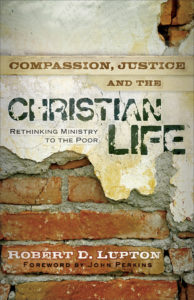Not many of us want to think about his topic, but it is probably more important than we would want to admit. Will we bear scars from this world (be they emotional, mental, or physical) in paradise? We want to say no. We don’t like the idea of having permanent effects for things in this world, especially in the Kingdom of God. Does the Bible, though, portray this as a reality that we should be ready to accept? For more perspectives on this topic, check out- Church Mystic and Almost Heresy.
I want to first admit that I’m right there with those who don’t like the idea. I will also admit that this emotional attachment to the subject (albeit negative) very well could impact my research of the topic. I will try to remain unbiased, but, let’s be honest, that’s not exactly possible.
The question itself is raised based on scriptures that tell us Christ is the first fruits of the resurrection,1 followed by those who have died in Him. When believers are resurrected, they will share in His glory as they did His suffering.2,3 It must be noted that after Christ’s resurrection, He appeared to Thomas with scars.4 This raises the question, will we be resurrected with our scars as well? If Christ is the first fruits, and He had His physical scars upon resurrection, will we have not only our physical but emotional and mental scars as well? If so, what does this mean for our future in Paradise, as well as how we live upon this earth today?
There are a few things I notice right away. First, none of the references to sharing in Christ’s glory mention anything of scars. The word used in 1 Peter, doxa, seems to exclude the idea of scars being present based on its definition.5 This word does not appear in Romans 8:17, but it does appear in the following verse. The word that does appear in v. 17, doxazō, is literally doxa turned into a verb.6 So Paul is saying that we will be doxa-fied in v. 17. If doxa excludes the idea of having scars, then doxazō must as well.
What, then, do we do with John where Jesus very clearly does have the scars after the resurrection? First, this is the only place in Scripture where Jesus’ scars are referenced after His resurrection. That’s a somewhat important fact. No other Gospel records this interaction, and none of the ascension accounts discuss His scars. I was hoping when starting my research to find something in the ascension accounts about Jesus’ body being transformed, but there was no such thing.
But let’s turn back to John’s scene. Thomas states he won’t believe that Christ is resurrected until he sees the scars. A few days later Christ shows up to show him those scars. The ending is the most important part, though. It reminds me of a scene from the 1994 Tim Allen classic, The Santa Clause.In this scene, Allen’s character is at the North Pole talking to the elf saying he sees it but doesn’t believe it. She then tells him, “Seeing isn’t believing, believing is seeing.” Jesus’ words are essentially the same- “Then Jesus told him, ‘You believe because you have seen me. Blessed are those who believe without seeing me.'”John 24:29, NLT
Jesus says, with little confusion, that believing in Him without seeing the scars is better than believing in Him because one sees the scars. This is important because Thomas was the only disciple who demanded to see the scars (at least in the records we have). We have no indication that the other disciples even saw the scars before this event. Even when Thomas is telling them what he requires for belief, we have no record of any of them chiming in and saying, “They’re there! Trust us!” To me, that’s something people would do most likely. But that did happen.
What if Jesus was resurrected without the scars. But, in order for Thomas to accept it, Jesus showed Him the scars? After this indication, Jesus could have gone back to being scar-free. This view does bring a few problems with it. First, it would indicate that Jesus can manipulate His body at His will. Let’s be honest though, He just rose from the dead. So I wouldn’t think that idea is too far-fetched. The second problem is that Jesus would then be accommodating the needs of Thomas.
I can see why people might not like this idea. Jesus, in our minds, shouldn’t be accommodating His disciples. He’s Jesus for crying out loud. But, there is precedent for such a thing (even if it comes later in the Bible). In the very next chapter of John, we have the famous interaction between Peter and Jesus.7 Jesus asks Peter three times, “Do you love me?” Peter responds, in turn, “You know I love you!” It seems that both are getting frustrated with the repeated questions and answers. Something is lost in translation though.
In the original text, Jesus asks Peter twice, “Do you agapaō me?” Peter responds twice, “Yes, you know I phileō you.” The third time, Jesus asks, “Do you phileō me?” That’s a large difference. We have one word for “love” today. They had many in Jesus’ time, and each had it’s nuances. The first love Jesus is asking about is an unconditional love. The love Peter is using is more of a friendly love. Jesus modifies the word He is using to meet Peter where he is and the needs he has. That’s almost mind blowing to us today. We constantly think we have to change to be better in order to meet Jesus. NO. He meets us where we’re at. He did it for Peter. Why wouldn’t he do that for Thomas?
I’ll admit none of this is concrete. So let’s look at a little bit more. This time we will focus on the idea of Paradise, what the Bible tells us about where we’ll be once we’re resurrected. In Luke, Jesus tells one of the criminals on the cross that they will be together in Paradise.8 I was hoping the word used for Paradise would give us some indication of what it would be like. Perhaps it’s defined as a place of perfection, or immeasurable glory and beauty, something like daxo that helps to eliminate the idea of scars being present. But it doesn’t.9
So that was a dead end. What if we look at the idea of the new heaven and new earth that are coming? One of these can be found in Revelation.10 It states, rather clearly, that there will be no more tears or pain. But what about the scars left by these things? There is also a statement that all things will be created new. This is a common theme in the New Testament.11,12 ALL things are being made new. The earth. You. Me. Yes, 2 Corinthians is referencing the new life we are given after salvation. However, the similarities between it and Revelations are undeniable. There’s a constant thread of God making things new. Restoring them. Why wouldn’t this carry over to the resurrection? Why wouldn’t God restore the earth and His people, making them new again? Removing the old.
The last passage that leads me to believe we will not see scars in Paradise is found in Isaiah. Isaiah is a prophet from the old testament who speaks abundantly about the end times. One verse reads, “Behold, I will create new heavens and a new earth. The former things will not be remembered, nor will they come to mind.”Isaiah 65:17, NIV We have, again, the idea of the new creations. There is something added though- the old will not be remembered. If we were to enter paradise with our scars, there is no way they would go unremembered. It’s just not possible.
I do concede that most of this evidence is circumstantial. It’s not very definitive. However, there is little definitive evidence in the other direction (that we do carry our scars into Paradise) that I could find within the Biblical witness either. For this reason, it is my conclusion that upon resurrection we will not still have the scars of this life. We will be made new. And upon the restoration of the world, there will be no remnants of its scars either. No remembrance of wars, or death, or heartbreak. All will be new. All will be doxazō. It will be glorified with Christ.
The more important question remains- what do we do with this? IF we do carry our scars into eternity, should that affect how we live here on earth? If not, should that as well? Absolutely not. Everything we do here on earth should be geared toward restoring humanity and Christian to God. We should always work for the, “Kingdom to come, and Your will be done, on Earth as it is in Heaven.” No other actions fall into the Christian life. As such, no actions that produce scars (on people or creation) fall within that paradigm. Whether or not scar follow into Paradise has no bearing on how we act on the Earth today, at least not if we’re following Christ’s example.





